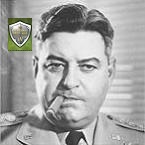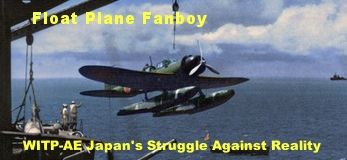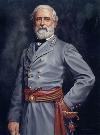Hotschi
Posts: 548
Joined: 1/18/2010
From: Austria
Status: offline

|
Finished In Command of History: Churchill Fighting and Writing the Second World War by David Reynolds - highly recommended. Reynolds explains how WSC - together with his Syndicate (among them Ismay, Pownall, Kelly, Allen, and Cabinet Secretary Brook) - wrote his 6 volumes about WW II. Some of the words Reynolds most used when examing the content of the 6 volumes, are "economically with the truth", "far from being candid", "disingenious" and "not true". But in all he remains fair to WSC (not once in the book he writes that Churchill "lied"). One has to remember that, after all, WSC was a politician, and what most people in this profession like to do, is to link themselves to events which were a success - and to shift blame on others in failures. WSC is no exception. Churchill himself said that he wrote the history of the Second World War "from his own point of view." And he wrote it at a time when he still aspired to get back into office - which means he couldn't be all too frank about still living leaders of other countries, Tito and Stalin for example - and, writing very close after the events described, when many things, most notably Ultra, were classified (and remained so well into the seventies). Also, one has to consider the capability of human memory. While very critical of his work, Reynolds remains convinced that Churchill was one of the greatest statesmen of Great Britain and that during WW II, he was the right man at the right place - and in my own humble opinion of WSC and his "darker sides", Reynolds is absolutely right when saying so.
Also finished Bull Halsey by E.B. Potter, very interesting reading, gave me a couple of chuckles about Halsey's "compromises" with his wife (which usually meant he did as she told...) and with a very good analysis of "Bull's Run", Halsey's encounters with typhoons and a very good decription of the surrender ceremony on the battleship Missouri. Learned that Leyte haunted him all his life; just a month before his death he was heavily engaged in defending his decisions there. He exploded about Samuel E. Morison's criticism, writing that "the Navy could have saved all the money for educating all it's senior commanders, as Morison knows it all better anyway". Another victim of his decision to go north for Ozawa without covering the San Bernadino Strait, was his long friendship with Kinkaid. Potter writes in a very readable style, and I hope his biography of Nimitz will be just the same.
Started reading The Bombing War: Europe, 1939-1945 by Richard Overy - an analysis of the whole bombing war, as can be expected about the Blitz and Allied bombing of Germany proper, but, notably, also including the German bombing of Soviet cities as well as Allied bombing of Italy and German occupied European territories and of its Balkan allies. Read about 90 pages out of 800 so far, and Overy so far refrains from finger-pointing or opinionating. Impressed so far.
Also started Black Shoe Carrier Admiral: Frank Jack Fletcher at Coral Sea, Midway, and Guadalcanal by John Lundstrom - let's see what Lundstrom has to say about Fletcher and his reputation. Gives also a brief overview about his service before these battles as well as a dozen pages about his ongoing career thereafter in the North Pacific. Fletcher was also critizised by Morison in his History of United States Naval Operations in World War II. Just to mention, as Fletcher discovered that Morison erred in placing him in the Minneapolis as his flagship of Crudiv Six on 7 December 1941 instead of the Astoria, Fletcher wrote to him in October 1948 to correct him. Seems that Morison never altered his text (would be interesting if this error is still included in the recent paperback reprints. I got them all, but they're in the basement, not yet read).
Speaking of Morison, is there any book available which covers all the errors in his 15 volume work, some sort of analysis comparable to Reynold's book above?
< Message edited by Hotschi -- 4/26/2014 7:56:05 PM >
_____________________________
"A big butcher's bill is not necessarily evidence of good tactics"
- Wavell's reply to Churchill, after the latter complained about faint-heartedness, as he discovered that British casualties in the evacuation from Somaliland had been only 260 men.
|
 Printable Version
Printable Version

















 Only read the Prologue so far, but do not find the writers style particularly easy to follow... Let's hope it improves....
Only read the Prologue so far, but do not find the writers style particularly easy to follow... Let's hope it improves.... 





 New Messages
New Messages No New Messages
No New Messages Hot Topic w/ New Messages
Hot Topic w/ New Messages Hot Topic w/o New Messages
Hot Topic w/o New Messages Locked w/ New Messages
Locked w/ New Messages Locked w/o New Messages
Locked w/o New Messages Post New Thread
Post New Thread